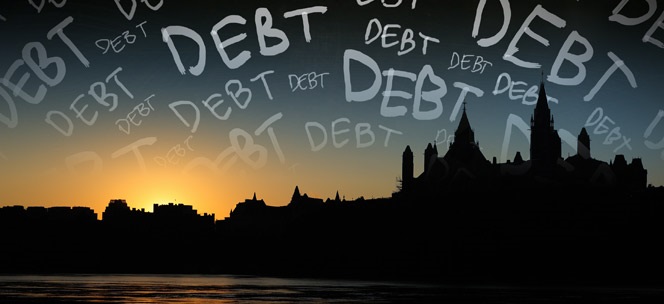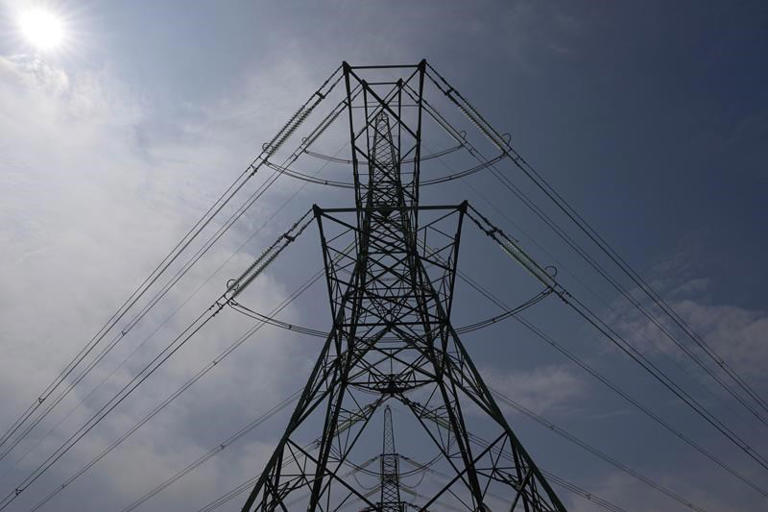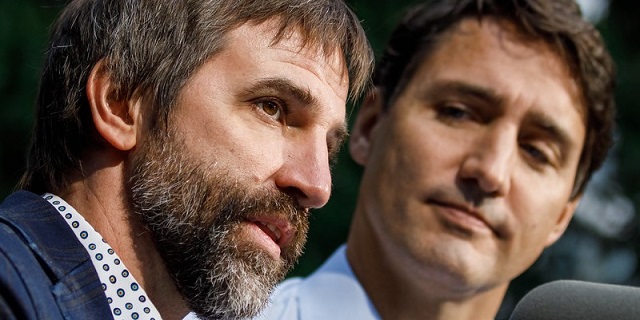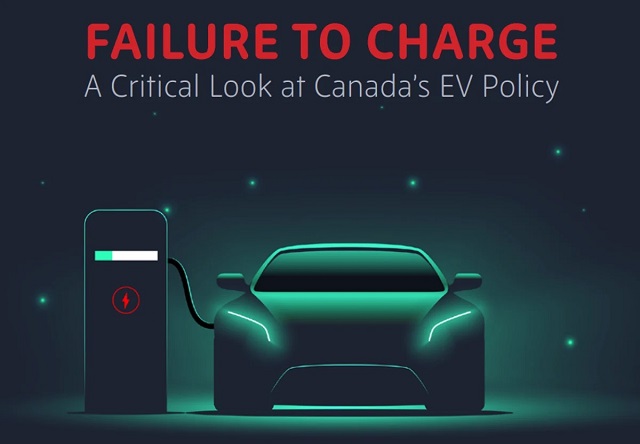Business
Parliamentary Budget Officer shows bigger hole in federal budget

From the Canadian Taxpayers Federation
Author: Franco Terrazzano
The Canadian Taxpayers Federation is calling on the federal government to immediately cut spending following the Parliamentary Budget Officer’s report showing the deficit already way over budget.
“As bad as the budget was, the independent budget watchdog is showing that federal finances are in even worse shape,” said Franco Terrazzano, CTF Federal Director. “The Trudeau government continues to mismanage our finances and that means more money wasted on interest charges, higher cost of living and more debt that Canadians’ kids and grandkids will have to pay back.”
The PBO’s October 2023 Economic and Fiscal Outlook shows this year’s deficit is expected to increase to $46.5 billion. That’s up from Budget 2023’s projected deficit of $40.1 billion.
The federal debt is expected to surpass $1.2 trillion this year, according to the PBO. The debt-to-GDP ratio is increasing to 42.6 per cent, despite Finance Minister Chrystia Freeland saying, “We are absolutely determined that our debt-to-GDP ratio must continue to decline.”
“The feds have already blown through their budgeted deficit projection by more than $6 billion and we’re only halfway through the budget year,” Terrazzano said. “And the government’s been solemnly signalling the bond rating agencies that it would get the debt-to-GDP ratio going down, but the PBO shows it’s going up.”
Interest on federal government debt will cost taxpayers $46.4 billion this year.
In its last budget, the government said it would find “savings of $15.4 billion over the next five years.” However, the PBO report shows the government announced “$28.6 billion in (net) new spending over 2022-23 to 2027-28.”
“Interest charges on the government’s credit card will cost taxpayers almost $4 billion every single month,” Terrazzano said. “That’s billions of dollars every month that can’t go to fixing potholes or lowering taxes because it’s going to the bond fund managers on bay street.
“Prime Minister Justin Trudeau must put down the credit card and pick up some scissors.”
Economy
Carbon tax costs Canadian economy billions

From the Canadian Taxpayers Federation
Author: Franco Terrazzano
This tax costs Canadians big time at the gas pump, on home heating bills, on the farm and at the dinner table.
The Canadian Taxpayers Federation is calling on the federal government to scrap the carbon tax in light of newly released government data showing the tax will cost the Canadian economy about $25 billion in 2030.
“Once again, we see the government’s own data showing what hardworking Canadians already know: the carbon tax costs Canada big time,” said Franco Terrazzano, CTF Federal Director. “The carbon tax makes the necessities of life more expensive and it will cost our economy billions of dollars.
“Prime Minister Justin Trudeau must scrap his carbon tax now.”
The government of Canada released modelling showing the cost of the carbon tax on the Canadian economy Thursday.
“The country’s GDP is expected to be about $25 billion lower in 2030 due to carbon pricing than it would be otherwise,” reports the Globe and Mail.
Canada contributes about 1.5 per cent of global emissions.
Government data shows emissions are going up in Canada. In 2022, the latest year of data, emissions in Canada were 708 megatonnes of CO2, an increase of 9.3 megatonnes from 2021.
The federal carbon tax currently costs 17 cents per litre of gasoline, 21 cents per litre of diesel and 15 cents per cubic metre of natural gas.
The carbon tax adds about $13 to the cost of filling up a minivan, about $20 to the cost of filling up a pickup truck and about $200 to the cost of filling up a big rig truck with diesel.
Farmers are charged the carbon tax for heating their barns and drying grains with natural gas and propane. The carbon tax will cost Canadian farmers $1 billion by 2030, according to the Parliamentary Budget Officer.
“No matter how many times this government tries to put lipstick on the carbon tax pig, the reality is clear,” said Kris Sims, CTF Alberta Director. “This tax costs Canadians big time at the gas pump, on home heating bills, on the farm and at the dinner table. Trudeau should make life more affordable and improve the Canadian economy by scrapping his carbon tax.”
Business
New York and Vermont Seek to Impose a Retroactive Climate Tax

From Heartland Daily News
By Joshua Loucks for the Cato Institute.
Energy producers will be subject to retroactive taxes in New York if the state assembly passes Senate Bill S2129A, known as the “Climate Change Superfund Act.” The superfund legislation seeks to impose a retroactive tax on energy companies that have emitted greenhouse gases (GHGs) and operated within the state over the last seventy years.
If passed, the new law will impose $75 billion in repayment fees for “historical polluters,” who lawmakers assert are primarily responsible for climate change damages within the state. The state will “assign liability to and require compensation from companies commensurate with their emissions” over the last “70 years or more.” The bill would establish a standard of strict liability, stating that “companies are required to pay into the fund because the use of their products caused the pollution. No finding of wrongdoing is required.”
New York is not alone in this effort. Superfunds built on retroactive taxes on GHG emissions are becoming increasingly popular. Vermont recently enacted similar legislation, S.259 (Act 122), titled the “Climate Superfund Act,” in which the state also retroactively taxes energy producers for historic emissions. Similar bills have also been introduced in Maryland and Massachusetts.
Climate superfund legislation seems to have one purpose: to raise revenue by taxing a politically unpopular industry. Under the New York law, fossil fuel‐producing energy companies would be taxed billions of dollars retroactively for engaging in legal and necessary behavior. For example, the seventy‐year retroactive tax would conceivably apply to any company—going back to 1954—that used fossil fuels to generate electricity or produced fuel for New York drivers.
The typical “economic efficiency” arguments for taxing an externality go out the window with the New York and Vermont approach, for at least two reasons. First, the goal of a blackboard or textbook approach to a carbon tax is to internalize the GHG externality. To apply such a tax accurately, the government would need to calculate the social cost of carbon (SCC).
Unfortunately, estimating the SCC is methodologically complex and open to wide ranges of estimates. As a result, the SCC is theoretically very useful but practically impossible to calculate with any reasonable degree of precision.
Second, the retroactive nature of these climate superfunds undermines the very incentives a textbook tax on externalities would promote. A carbon tax’s central feature is that it is intended to reduce externalities from current and future activity by changing incentives. However, by imposing retroactive taxes, the New York and Vermont legislation will not impact emitters’ future behavior in a way that mimics a textbook carbon tax or improves economic outcomes.
Arbitrary and retroactive taxes can, however, raise prices for consumers by increasing policy uncertainty, affecting firm profitability, and reducing investment (or causing investors to flee GHG‐emitting industries in the state altogether). Residents in both New York and Vermont already pay over 30 percent more than the US average in residential electricity prices, and this legislation will not lower these costs to consumers.
Climate superfunds are not a serious attempt to solve environmental challenges but rather a way to raise government revenue while unfairly punishing an entire industry (one whose actions the New York legislation claims “have been unconscionable, closely reflecting the strategy of denial, deflection, and delay used by the tobacco industry”).
Fossil fuel companies enabled GHG emissions, of course, but they also empowered significant growth, mobility, and prosperity. The punitive nature of the policy is laid bare by the fact that neither New York nor Vermont used a generic SCC or an evidentiary proceeding to calculate precise damages.
Finally, establishing a standard in which “no finding of wrongdoing is required” to levy fines against historical actions that were (and still are) legally permitted sets a dangerous precedent for what governments can do, not only to businesses that have produced fossil fuels but also to individuals who have consumed them.
Cato research associate Joshua Loucks contributed to this post.
Originally published by the Cato Institute. Republished with permission under a Creative Commons Attribution-NonCommercial-ShareAlike 4.0 International License.
-

 International1 day ago
International1 day agoWilliam ‘Lia’ Thomas loses challenge to rule banning him from women’s Olympic contests
-

 Economy1 day ago
Economy1 day agoOttawa should abandon unfeasible and damaging ‘net-zero’ plan
-

 Economy1 day ago
Economy1 day agoCarbon tax costs Canadian economy billions
-

 Brownstone Institute1 day ago
Brownstone Institute1 day agoWHO IHR Modifications Were Illegally Approved
-

 COVID-191 day ago
COVID-191 day agoFraser Valley churches challenge Dr. Bonnie Henry as dishonest and discriminatory in court
-

 Agriculture1 day ago
Agriculture1 day agoDiet, Injections, and Injunctions
-

 Brownstone Institute8 hours ago
Brownstone Institute8 hours agoThe Trouble with Testing
-

 Agriculture7 hours ago
Agriculture7 hours agoThe Enemies of Food Freedom





